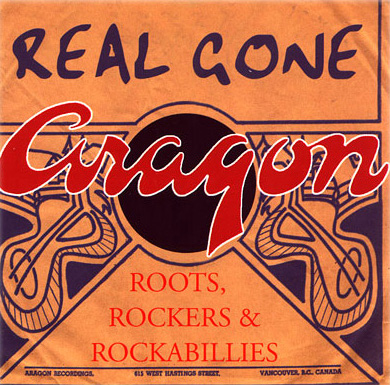
Al Reusch
In 1946, Aragon Recording Studios was opened at 615 West
Al Reusch was a musician, big band leader, and a broadcaster. He was one of
***
Musician, big band leader and one of Vancouver's first DJs; afternoon host Name It, Play It show and morning host Al Reusch Show, CKMO 1942, CKNW 1945; founded Aragon Recording Studios (now Mushroom Studios) one of Canada's first recording studios Vancouver 1946; member BC Entertainment Hall of Fame.
Feb. 1/14 Recording pioneer Al Reusch was born.
He died Feb. 14/00 at age 86
***
(Copyright Vancouver Sun 1998)
Profile of Al Reusch
Al Reusch is a one man history of the Western Canadian music business.
Reusch of North Vancouver started playing clarinet and saxophone in
He co-founded Aragon Records, arguably
The Reusch story began in
In
"She wasn't a singer, she was a swimmer," he recalls with a laugh. "She swam across
Tired of being a working musician, Reusch branched out into radio in 1942. In 1945, Bill Rae hired him to be the first production manager at CKNW.
Unfortunately, Reusch and Rae didn't get along, so Al quickly moved to CKMO (now CFUN), where he hosted Name It, Play It, a popular teenage request show. But his most lasting contribution to radio was when he gave
The same year, he started up Aragon Recording Studios with two partners. "After the war a lot of people wanted to record and send messages home," he explains. "So we rented space in an office building at 615 West
In 1948 a bagpiper named William Barrie talked Reusch into recording and pressing a
Suddenly, Reusch was in the record business and his label became synonymous with country music.
He worked with an amazing range of artists, from Juliette (who cut three country 78s for Aragon under her full name, Juliette Sysak) to the Supremes (he recorded a version of Michael Row The Boat Ashore, which was arranged by Nelson Riddle for the Tarzan TV series) and Terry Jacks (Reusch engineered Seasons in the Sun).
He also kept his big band alive, playing seven years at the Hotel Vancouver and doing his fair share of high school grads.
In 1995, his name was added to the Star Walk of Fame on
"Hugh Pickett phoned and said I was down for recording, and asked 'is that category okay?' And I said 'well, really I've been in radio, I was a musician and recording was just part of my thing. I'd prefer to go under music, because that encompasses everything'."
John Mackie The Sun